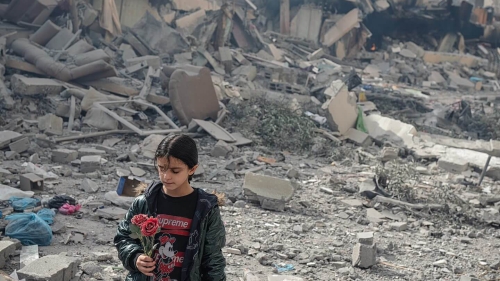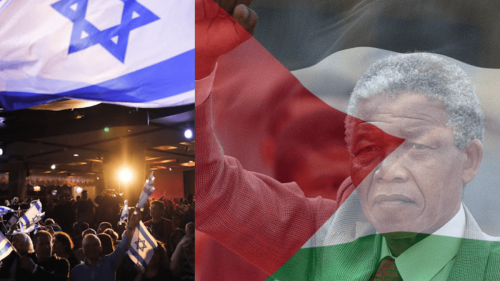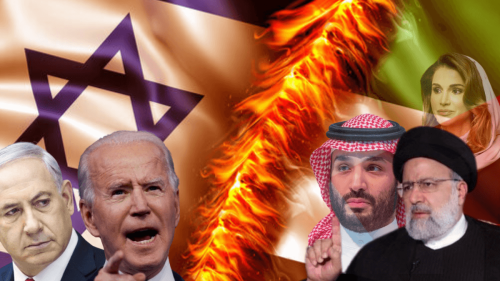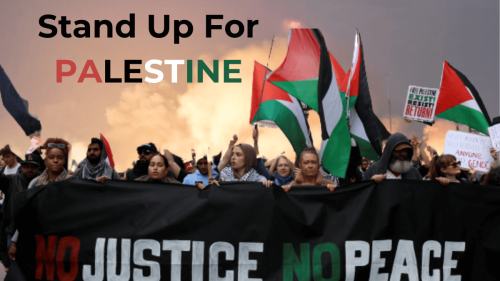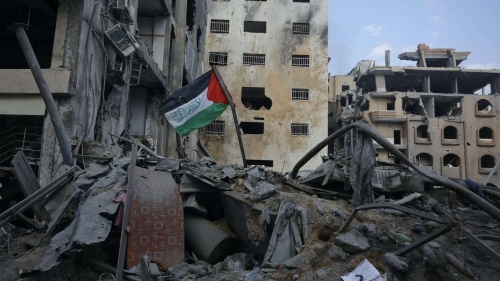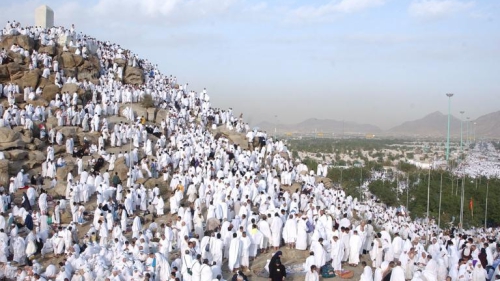Fight For Your Rights Before You Lose Them
Last week Human Concern International (HCI), an Ottawa-based international relief and development organization was accused of supporting international Islamic terrorism. The group, which was founded in the early 1980s, provides humanitarian assistance to the Muslim world. The allegation came to light after HCI took the Canadian government to court for blacklisting it. The government's defense cites "national security" and "threat to international relations" for refusing to make public any evidence. The charge leveled by the Canadian Security Intelligence Service (CSIS) against this respected Muslim charity has shocked the Canadian Muslim community.
The CSIS, Canada's national intelligence agency, also filed a report last week in the deportation proceedings against Mahmoud Jaballah, a Toronto schoolteacher of Egyptian origin, alleging that he is a senior member of Al Jihad. According to the CSIS, Al Jihad is funded by Osama Bin Ladin and is working in Canada to help establish an Islamic state in Egypt. It is unclear as to what evidence the government has, and in the absence of such proof, it can only be assumed that Jaballah has been singled-out for working with a number of Islamic humanitarian groups.
The report against the 37-year old contains an ominous warning to anyone with Islamic inclinations. It states: "The service (CSIS) believes that Jaballah maintains contact with individuals associated with the international Islamic milieu, especially individuals linked to the Al Jihad." Even if this were true, since when did "guilt by association" and "guilty until proven innocent" become the guiding principles of democratic judicial systems? And what exactly is the "international Islamic milieu?"
Last year an Egyptian Islamic scholar, Sheikh Abdul Hamid Mohamed Ghoneim, who was invited to speak at a Muslim Arab Youth Association (MAYA) function in Toronto, was handcuffed, strip-searched, detained for about 24 hours and interrogated by Immigration authorities and the CSIS. Surprisingly, he had just completed a speaking tour of the United States and had been issued a visitor visa by the Canadian consulate in Detroit only two hours earlier. Not only was his right to legal counsel violated but he was not even given a reason for his detention - both fundamental rights enshrined in the Canadian Charter of Rights and Freedoms. As Sheikh Ghoneim, a senior ranking finance official in the Egyptian government told reporters after the incident: "No one told me why I was being detained, I'm not a criminal. I have a valid visa."
If such respected and prominent individuals and institutions in the community are treated this way, how do others fare? Well, not too well. Most people who have been mistreated or harassed have simply kept quiet, therefore we lack accurate information concerning how many victims of such treatment there are. But undoubtedly there is a growing number being questioned, monitored, detained and even deported on the grounds of "national security." Not unlike the "secret evidence" cases in the United States that have permitted the detaining of individuals without being charged with a crime, "national security" is a catch all term essentially allowing the government to weasel out from having to afford some of the fundamental rights guaranteed by the Canadian Constitution and international human rights covenants. Being Muslim and supporting Islam as a religion or as a valid political platform or the Palestinian cause appear to be reasons enough to be targeted for special scrutiny.
What is behind this recent push to target Muslims?
It appears that the U. S. campaign to ferret out "terrorists" has moved with a vengeance into Canada. In early 1999, a U.S. judiciary subcommittee holding a hearing on the alleged increase in drugs and terror crossing the U.S./Canadian border heard that the lax visa and asylum laws and the proximity to the United States has made Canada a haven for terrorists. In fact, according to an article this week in the National Post, the United States has been putting pressure on Canada to tighten security for some time. American authorities apparently have gone so far as to threaten to revoke the "most favored nation" trade status extended to Canada when bidding for American defense contracts (worth an estimated $5 billion dollars a year).
The CSIS appears to have taken such threats very seriously. The agency and its director have made a number of statements claiming that terrorists have set up shop in Canada. In fact, CSIS director, Ward Elcock, testified this past summer to a Canadian Senate committee, that "we know that the infrastructure has been established here to support a terrorist act in Canada." As if this were not alarmist enough, last week the security agency tabled its 1998 annual report in Canada's Parliament, claiming that international terrorists and foreign spy agencies are using Canada's various ethnic communities as a source for money and information. Fortunately or unfortunately, depending on how you look at it, it's not only Muslims who are being targeted. The CSIS claims that Kurds, Tamils, Sikhs, the Irish and other groups use Canada as a haven for questionable activity.
In some cases, such as with HCI and Sheikh Ghoneim, it seems that Canada is becoming more aggressive than even the United States. But one has to wonder how much more advanced the CSIS is when the entire American security apparatus let the "terrorist" Sheikh Ghoneim travel freely throughout the United States. When the Sheikh was released, he returned to Detroit under the very noses of American Customs, Immigration and whoever else the Americans post at the border. How could the United States let such a big fish in the terrorism business get by?
Many of the documents, filed by the government in defense of the judicial review filed for by HCI, contain blacked out portions. But it appears that he alleged evidence against HCI is nothing more than newspaper clippings from the United States and Europe. The papers refer to a group with a name similar to HCI that allegedly has funded various individuals or organizations responsible for acts of violence, including those who have allegedly perpetrated massacres in Algeria. It is odd however, that the security apparatus of a democracy would use newspaper articles as evidence in leveling such serious charges.
Another concern is the emphasis given to self-proclaimed terrorism experts such as American journalist Steven Emerson and others of his ilk. In fact, Emerson was cited as a source in a documentary linking a mainstream Canadian Muslim organization, the Islamic Circle of North America, to international terrorism. The community eventually forced the producers of the documentary to apologize but the damage was already done. I received a call a few weeks ago from an individual looking for material on Emerson, in the event he was called as a government witness in the Sheikh Ghoneim lawsuit. No word yet as to whether he will be called. But the fact that he would even be considered as a witness, given all the controversy surrounding him, says something about the government's evidence.
It is scary to think that the CSIS and other government bodies have bought these ideologically motivated arguments lock, stock and barrel. The dangerous consequences of such generalizations are violations of fundamental rights and restrictions of peaceful activities of targeted communities. Already many Muslims are afraid to exercise the fundamental freedom to express themselves on issues that may get them targeted.
What should be of most concern with reference to fundamental human rights is the fact that even non-political activities have become suspect. In fact, as is evident from the situation of HCI and some other groups, even activities such as fund-raising for non-political and humanitarian operations in the Muslim world have suffered. Many are becoming increasingly hesitant to contribute and volunteer for such organizations.
The squeeze is on and we must fight back. If targeted groups don't fight back to clear the clouds of suspicion then it will only get worse. Today it's the relief groups; tomorrow it could be the local Mosque.
Moreover, there have also been proposals floating around the Canadian Parliament to strip the charity status of organizations suspected of being fronts for terrorism. One such proposal called for the creation of a new legal process -- or more aptly, lack of due process -- whereby charity status could be revoked in closed hearings before the Federal Court. The proposal went so far as to call for closed hearings where even lawyers for suspect organizations were to be barred from the courtroom. What happened to the right to know the case against you, the right to counsel and the right to be presumed innocent?
The concern centers on the potential for abuse of such rules and the unfair targeting which can follow such measures. Canadian Revenue Minister Herb Dhaliwal openly disagreed with the proposal, and told reporters that he has not seen any evidence of charities raising funds for terrorists overseas. Dhaliwal, who hails from a Sikh background, wisely saw the potential for abuse.
No doubt, terrorists and those who support them must be stopped in their tracks. But innocent people should not be harmed in the process. The only way to ensure this is to have more procedural safeguards, not fewer. It has become too easy for governments to hide behind the all purpose veil of "national security." The evidence used in such proceedings must be made public and must be credible and tested.
And the communities effected by these situations must move beyond being in a state of shock to rally around reputable organizations like HCI for the long-term interest of the whole community.
It's time to fight for our rights before we don't have any at all.






